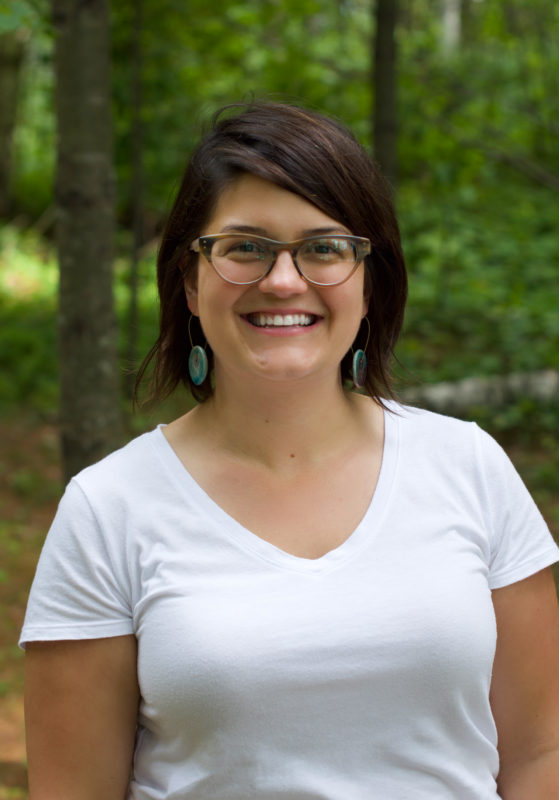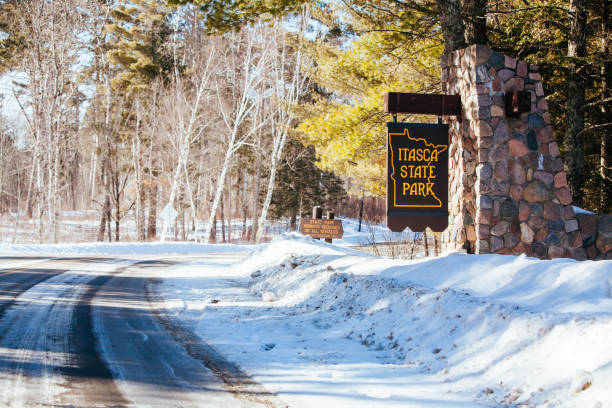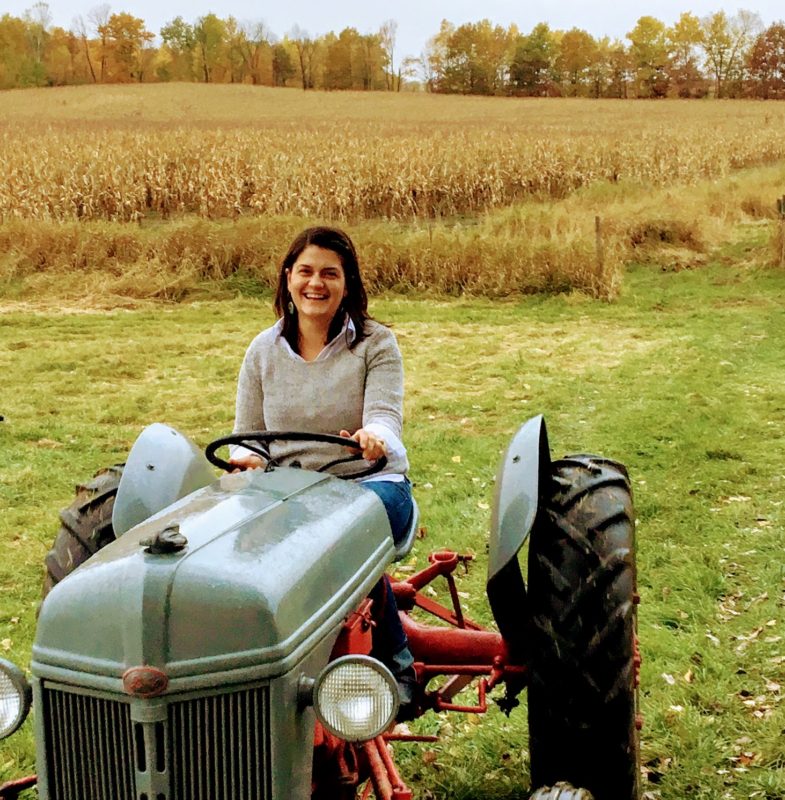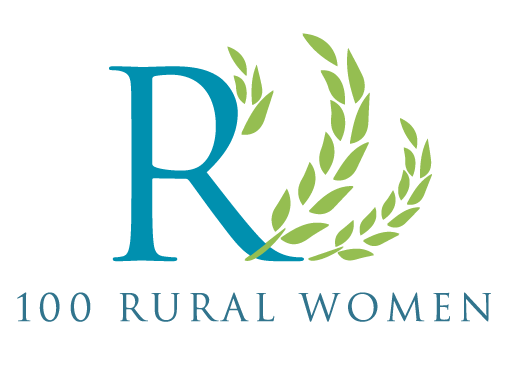“I’m not alone in really loving rural spaces and loving rural communities.”
DeeDee LeMier is a Community Economics and Tourism Extension Educator that joined the team in January 2020, bringing 13+ years of experience in outreach & engagement work across rural Minnesota. She has worked with young people in Baudette, Luverne, Grand Marais, and almost everywhere in between. Her experience spans the higher education, nonprofit and private sectors. DeeDee has extensive personal experience juggling remote work via satellite internet and balancing childcare with work obligations. She is passionate about making sure women’s experiences are included in economic development and planning decisions. She holds a BA in Organizational Communication and an MBA from Hamline University.
We are excited to feature her through our Spotlight Profiles.

Question: Tell us about yourself
Answer: My name is DeeDee LeMier, and I’m part of the University of Minnesota Extension team. I serve as an extension educator with community economics and tourism development. I got connected with 100 Rural Women through Teresa. We actually met at this amazing event that was hosted by Blandin, really seeking to connect a variety of women from across rural Minnesota. I was struck by her vision and the way that she really centered the strength of rural communities in her vision for what the organization would be. Especially, of women in rural communities. Outside of work, I live in the Park Rapids area. I’m originally from this part of the state. Although I usually just tell people southern Canada because it’s way far north. While I’ve lived all over the state, I recently moved to that area I’m from and I’m really glad to be here.
Question: Describe your connection to rural America for us?
Answer: My family on both sides have been in northern Minnesota for about 100 years. We’ve directly benefited from some of the land treaties and things like that that opened up additional land in northern Minnesota to white settlers and pushed out the Anishinaabe people in the area. There were a lot of connections there around logging and farming. Those connections really are very much still there as much of my family lives in that area. I have joked for years though that my family inadvertently made me sort of an on-the-fence sort of person.
When my older brother was born, dads weren’t allowed in the delivery room at the Bemidji hospital. Hence, when I was expected, my parents went down to the twin cities. So I was actually born in Minneapolis in order to access the kind of healthcare that they were looking for. I always lived in the same home, but even from my birth had that sort of dynamic of both urban and some of the rural pieces. That has colored my life from day one. I went to the same school, kindergarten-12th grade, and my family still lives in the same area. But, I had wanted to try something a little different and went to college in St. Paul. My career has really been colored by moving back and forth between rural and urban spaces.
Even if I was living in an urban space, I was thinking about and serving folks in rural spaces. It’s taken me a little while, but I’ve really come to embrace that dynamic.

Question: Tells us about a moment you felt discouraged and how you overcame it.
Answer: In the context of, I think that you know, being a rural woman and the way that that discouragement can show up. One of the biggest things for me was the dynamic of growing up in a school setting, and sort of thing, I was really encouraged to be a leader and was very much supported by my community in doing that. I was able to go on a trip to Washington D.C. and I participated in girls state. I did a number of these leadership kinds of things.
As a young adult, I found it really surprising that it was hard to find opportunities to use those skills that my community had really encouraged and helped me to develop. It often felt like those same skills weren’t actually welcome in a rural community and they didn’t know what to do with it. That was hard for a long time to try and figure out. I had to ask, “How do I feel like myself in a place that should feel more like home?”
A few years ago, we moved back into a rural space and I had some leadership opportunities there. It allowed for that transition to sort of more fully come together. But even then, even as a 30 something-year-old woman, to still have those experiences when it’s like, “Oof! We want you to lead. We want your skills… but not in that way. Not quite in a way that you would actually help move things forward or help get things done.”
I know that may be a little bit big, but I feel like when I was younger there was always a sense of like, “What am I not doing right here?”. As I’ve gotten older, to realize that there is: 1) what are you ready for as a leader, but also 2) what is the group you’re working with ready for? And, how do you find some balance in there that isn’t always a reflection on you or your skills, but really having a little bit more time and wisdom to reflect on what the group may really need? How can I best assist where they’re at as well?

Question: How do you lead and create change in your community and how can your community better support rural women?
Answer: That’s a good question. I would say, in many ways, that I am at a transitional point. We moved this last summer, and a number of my volunteer roles were very geographically dependent. As so, for the first time ever, I am not serving on any boards. Although I am still doing some volunteer work. I’m at a point where I’m trying to let that dust settle. I want to let that path emerge for what the next step looks like for me.
I would say there are two things that are sort of emerging during this transition time. Firstly is the power of having really good broadband access. I went from a rural property with really terrible satellite internet. Just terrible. We couldn’t be having this conversation right now with that setup. Now, I have one full gigabyte of broadband access that’s hardwired. It’s just dramatically different when you think about the economic impact and access to healthcare.
What’s been personally important is the ability to do some volunteer work through that online platform, and to connect with other women living in rural spaces. Specifically, through an organization called She Climbs Mountains, which is focused on women that have experienced mother loss. That has been really amazing for me to recognize the true power and to be experiencing firsthand, these last few months of what a difference that connectivity makes.
Secondly is the meaning of a living wage for women in rural settings. I have been aware, sort of at a peripheral level, of some of the structural differences around how healthcare workers are paid in the far reaches of rural communities, among other things. There are some structural ways that cause significant structural disparities. I don’t know what that looks like for me, but that is an area that I just continue to be shocked anew by how stuck we are if we’re paying such broad sweeping stretches of women below a living wage. And how that keeps our community stuck from growing and really thriving.
Question: If you could give one piece of advice to your former self, what would that be and why?
Answer: I would credit this a lot to women like Teresa. But, the biggest piece is that I’m not alone in really loving rural spaces and loving rural communities. What’s more, seeking to want them to be more inclusive of the variety of people that live in rural spaces. I’d tell myself to be more open to learning a full range of our history. Such as, how we came to be in this place and in this time.
Maybe it’s because of social media or some other generational shifts, but it’s just been in the last few years that I’ve felt like I’ve really been able to connect with the wide range of people that are thinking about these things across rural spaces. I’ve been able to participate in a variety of conferences and professional development things. As well as more personal growth and entertainment. Time and time again, I’m just amazed at the range of life experiences, the richness of skills, and insight that women from rural spaces are able to bring to their communities. I really wish I’d known I wasn’t alone for wanting to have those kinds of conversations in rural spaces.

Question: Who or what has been your biggest inspiration?
Answer: I’ve been blessed with a lot of inspiring figures in my life. So, I don’t know that the “biggest” feels, necessarily comfortable. What has been a really significant driving force for me was the students that I worked with when I worked in college enrollment. I worked with students from the northern half of the state of Minnesota, North Dakota, and from rural areas in a number of other states. Surely it has made a profound and lasting impact on me to have read those hundreds and thousands of college admissions essays.
For instance, the first-person stories about people’s experiences and what they’re daydreaming about, and seeking in their life, and the challenges. In some cases, violence and trauma that they’ve had to overcome. It informs how I engage in my community now. It informs about how I think about different experiences and ways of being of the world. You read the essays, you meet the students, and do the interviews. Having the long-range relationships and seeing how they play out is just so incredibly inspiring.
It’s not a static thing that I was inspired by these 17-year olds. I continue to be inspired by how all those folks have continued to seek change and betterment in their communities. To see that for many of them, it is the positive parts of their rural communities that have prepared them as well as these reminders that there are ways our communities can really leave people out of conversations or devalue people’s voices. Yet, it has been those students and young adults that continue to blow me away. That is really motivating to me to know that rural communities do not look one way.


